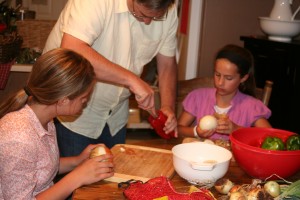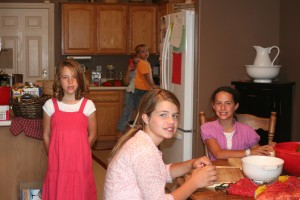My camera has been taken hostage, to the very ends of the earth in fact, so I have had to put a couple of scheduled posts on hold until I have it in my hot little hands once more. So until that day I thought I would share some things I have been thinking about lately.
A couple of weeks ago I watched a talk give by Bruce Chadwick and Brent Top at BYU’s annual Women’s Conference in 2004. The title of the talk is “I Have No Greater Joy Than To Hear That My Children Walk in Truth.” They did a very exhaustive study on teenagers and their thoughts and feelings on religion, and in this talk they presented their finds and offered suggestions to parents on how we can help our teenagers stay true. If you would like to see the whole talk you can go HERE.
They gave a few suggestions, that I would like to share:
1. Build a Household of Faith
-Teach the gospel,
(Have Family Home Evening, family prayers and family scripture study)
-Encourage youth to have spiritual experiences and get their own testimony
-Practice what you preach.
2.Render Daily Outpourings of Love
-Time (quantity equals quality)
-Words (tell them you love them, daily)
-Hugs (physical affection)
3. Establish fair, but firm boundaries
-Keep your eyes wide open, use wisdom and be interested
Talk with your children
Check with others (teachers, neighbors, family)
watch for warning signs
-If you love them discipline them
Say what you mean, and mean what you say.
Lower your voice, don’t yell, people stop listening once the yelling starts.
4. Counsel, but don’t control.
-Don’t use guilt induction or love withdrawal.
-Show respect for your children’s opinions and ideas
(even if you don’t agree, be respectful and listen).
-Allow your children to be their own person.
5. Don’t give up and don’t lose hope.
-2 Kings 6:16
While this talk was geared towards raising teenagers, I think these principles should be applied all children, no matter the age. If we are applying these principles when our children are small, I think the transition into the teenage years will be smoother because we have already established a loving, Christ centered environment, where our children feel free to mature into Chirst centered adults.





























